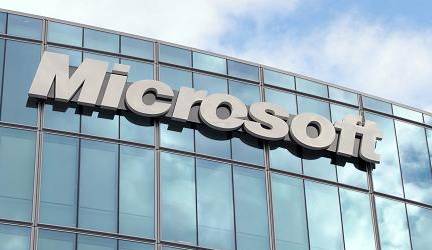Microsoft told to amend Windows 8 to avoid new clash with EU

Your support helps us to tell the story
From reproductive rights to climate change to Big Tech, The Independent is on the ground when the story is developing. Whether it's investigating the financials of Elon Musk's pro-Trump PAC or producing our latest documentary, 'The A Word', which shines a light on the American women fighting for reproductive rights, we know how important it is to parse out the facts from the messaging.
At such a critical moment in US history, we need reporters on the ground. Your donation allows us to keep sending journalists to speak to both sides of the story.
The Independent is trusted by Americans across the entire political spectrum. And unlike many other quality news outlets, we choose not to lock Americans out of our reporting and analysis with paywalls. We believe quality journalism should be available to everyone, paid for by those who can afford it.
Your support makes all the difference.Microsoft was warned by European Union regulators to modify how it presents Internet Explorer in its new Windows 8 operating system to avert another antitrust clash, Competition Commissioner Joaquin Almunia said.
Microsoft said it would implement changes to Windows 8 before the new version of its operating system goes on sale in two days. The world's largest software maker was also sent EU antitrust objections Wednesday over its failure to comply with a settlement of an earlier probe requiring it to display a choice of rival web browsers.
"We have raised issues with Microsoft relating to Windows 8," Almunia told reporters in Brussels Wednesday. "If a user decides to set a rival browser as a default browser, there should not be an unnecessary warning in Windows or confirmations by the user and the Internet Explorer icon should also be unpinned from the Start screen. We expect Microsoft to address these issues."
Microsoft has already been fined 1.68 billion euros ($2.17 billion) in EU antitrust probes, including an 899 million-euro penalty for failing to obey an order to share data with competitors. The Redmond, Wash.-based company agreed in 2009 to offer access to rival browsers as a part of a settlement to repair its relationship with the bloc's regulators. It told regulators last December that it was complying with its commitments.
Robin Koch, a spokesman for Microsoft in Brussels, said the company was changing "some aspects of the way the browser choice screen works on Windows 8 and will have those changes implemented" before the product goes on sale on Oct. 26.
Almunia said he'd contacted Microsoft about Windows 8 and told management "at the highest level possible what are my concerns and what kind of presentation should be avoided if they don't want to take the risk of new investigations."
Wednesday's statement of objections is a step toward possible fines over Microsoft's failure to comply with its earlier pledge to display a choice of web browser. The EU can fine companies as much as 10 percent of yearly revenue if they "breached commitments made legally binding," according to its statement.
Microsoft takes the statement of objections listing the EU's antitrust concerns over compliance with the settlement "very seriously," Koch said.
Almunia said in July that Microsoft may have misled regulators by failing to display a browser choice screen to users of the Windows operating system since February 2011. The company blamed a technical error for not showing the screen to some users and offered to extend until March 2016 a commitment to show it.
Microsoft is strengthening its internal procedures to help prevent a repeat of the technical error, Koch said. The company "will continue to cooperate fully with" the commission.
The company said in July it only learned that month that it didn't offer its browser choice software to some 28 million computers running Windows 7 Service Pack 1, or 10 percent of the computers that should have received it. It distributed a software fix to computers that were affected.
Under the terms of Microsoft's 2009 pledge, consumers who buy personal computers were given a choice of the 12 most widely used browsers to install in addition to, or instead of, Microsoft's Internet Explorer.
Any fines for Microsoft may take into account repeat offenses, Almunia said in July in a reference to the EU's 2008 penalty for the company's failure to obey an earlier EU decision. That ruling also ordered it to provide information to software developers to make compatible products.
Almunia said there were "no grounds" for EU officials to intervene on Microsoft's Windows RT software for tablets. The software, to be introduced Friday, prohibits any browser except for Internet Explorer, according to a May blog post by Mozilla, maker of the rival Firefox browser.
Companies have raised "various issues about other aspects of Microsoft's compliance" that regulators had examined and didn't see any reason to pursue, Almunia said.
"We will remain vigilant and we will continue to monitor all aspects of Microsoft's compliance with the commitments in the future," Almunia said.
— With assistance from Jim Brunsden in Brussels.
Join our commenting forum
Join thought-provoking conversations, follow other Independent readers and see their replies
Comments